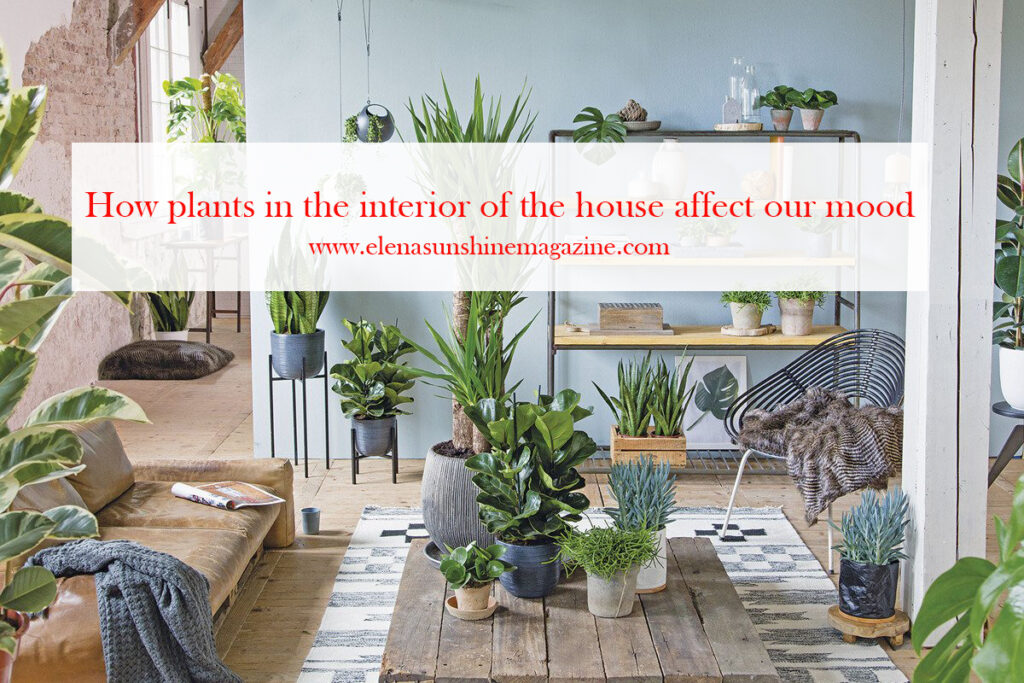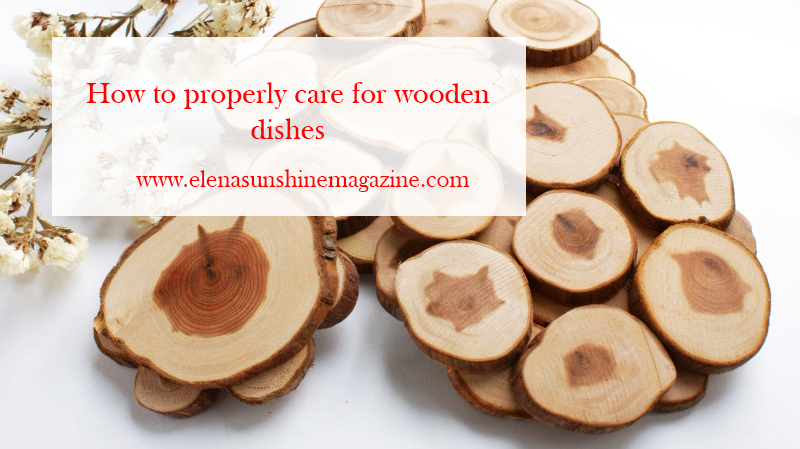Indoor plants decorate the space of the house and give positive emotions. Indoor plants can relieve stress and cheer up, and taking care of them can distract from unpleasant thoughts. How plants in the interior of the house affect our mood.
The presence of indoor plants is also associated with creative thinking. In addition, they purify the air, saturating it with oxygen and moisture, which is good for health.
You can choose a plant with healing properties, provide it with full-fledged care and sometimes contact it: be near, touch the leaves.
What is the difference between medicinal plants? How plants in the interior of the house affect our mood.
Some of them secrete aromatic essential oils, which, when they enter the human body, have a beneficial effect on the emotional state, and improve mood. Others – intensively saturate the room with oxygen, improving the work of the brain and heart.
Living greenery in the house is always beautiful, but in addition to aesthetics, it is a health benefit. Home plants or office plants help to purify the air, facilitating breathing, and producing additional portions of oxygen. Green plants with rounded leaves or large tree-like representatives are considered ideal indoor options. People usually find smooth, rounded lines more pleasing to the eye. But it is crucial that emotional and physical health does not suffer because of the plants, their presence does not cause tension and anxiety.

It is worth avoiding sensory overload due to one or two correctly positioned plants. The effect of the “inner jungle” can make people tense up, even if they are not aware of it, as survival instincts begin to act. Subconsciously, rooms, where there are too many lush, curly flowers, are perceived as dangerous, constant presence in them can disrupt psychoemotional health. It is essential to know about the benefits and rules of choosing plants for the house.
Tangible greenery: Fighting stress
Succulents attract attention on several levels. Large, solid plants, green, with oval leaves and thick stems that make them look like miniature trees. They carry a sense of stability, contact with them gives pleasant tactile sensations, relieving stress.
It is important to fight stress, because it weakens the body, and reduces immunity. Prolonged stress and severe shocks accelerate the development of diseases of the heart and vascular system, lungs, and stomach. It is important to monitor your psychological state in order to prevent serious health problems.
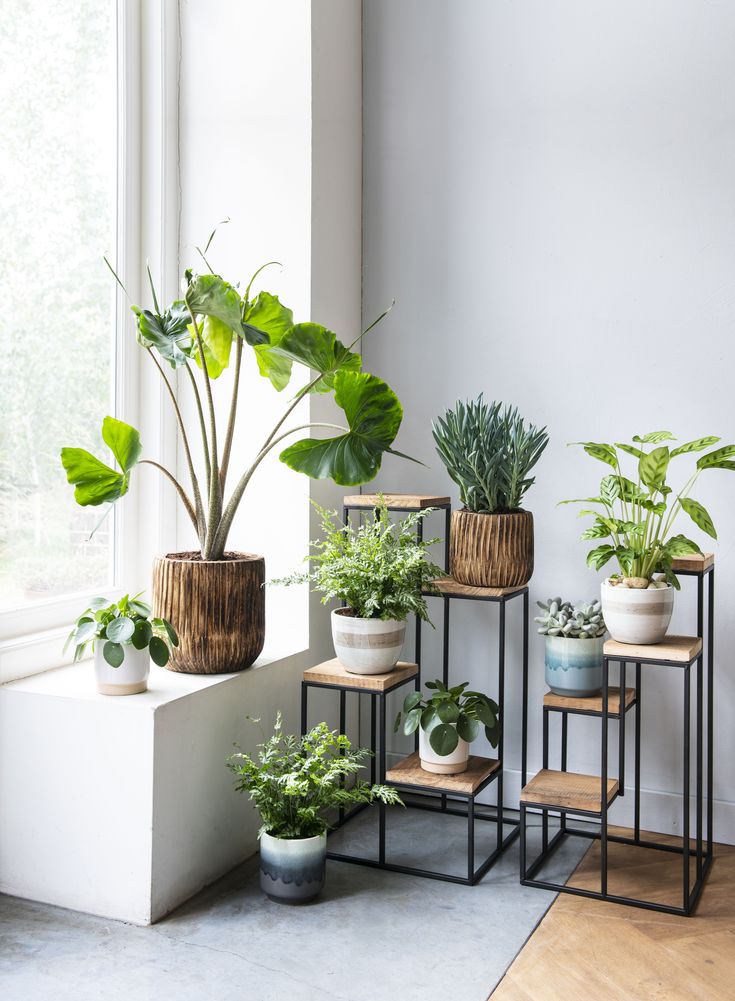
In order for the beneficial effect of plants on human health to be especially strong, it is important to properly place flowers in the interior. You can create small green corners in the office, bedroom, hall, or kitchen. For example, place aloe and a fat woman on a well–lit table, not far from the place of rest – sansevieria, lavender, or lemon tree. There are fragrant herbs in the kitchen, but you can also put them in the living room, not far from the rose and pelargonium.
The main thing is to create the necessary conditions for plants to live full life and be near them at least once a day. And soon you will notice how fatigue, anxiety, and stress will remind you of themselves less and less.
(1) – “Our results suggest that active interaction with indoor plants can reduce physiological and psychological stress compared with mental work. This is accomplished through suppression of sympathetic nervous system activity and diastolic blood pressure and promotion of comfortable, soothed, and natural feelings.”
Plants that are useful for health. How plants in the interior of the house affect our mood.
Indoor plants and spicy herbs, easily grown at home, will help calm down and relieve stress.
#1. Aloe. Purifies the air and releases a lot of oxygen. Being near this plant, people notice that they sleep better and wake up easier. Aloe also improves mood and memory and fights depression.
#2. Basil. It contains a lot of linalool, a natural component that has soothing properties, and a beneficial effect on the nervous and cardiovascular systems. It is enough to touch basil leaves to reduce stress levels and increase mindfulness.
#3. Lavender. A natural antidepressant, a fragrant healer that will support the body in turbulent times, relieve headaches, lower the pulse, and banish insomnia. Owners of this plant experience less anxiety.
#4. Mint. The plant secretes a whole bouquet of healing aromatic substances (menthol, limonene, etc.), which instantly improve mood, memory, and concentration. After “communicating” with mint, appetite increases, drowsiness and anxiety decrease, and vital energy actively return.
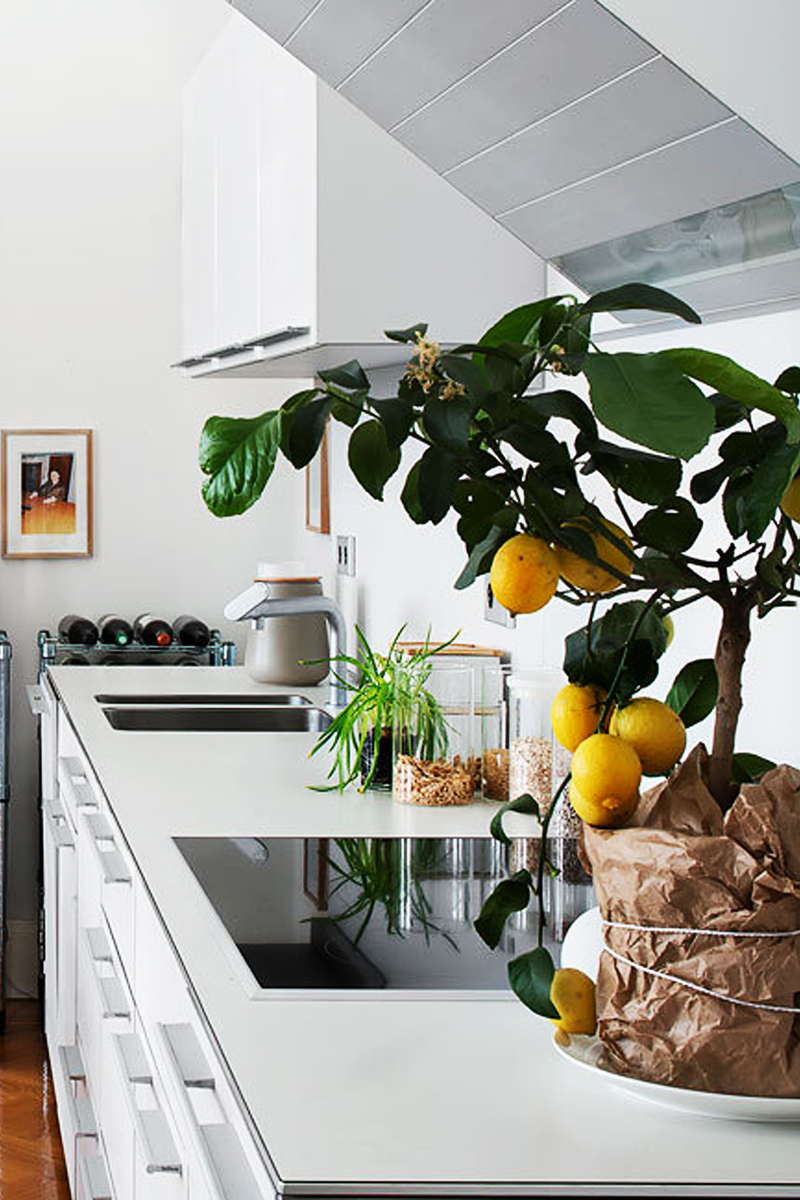
#5. Lemon. Fragrant lemon tree fights stress, anxiety, and nervous tension. The light invigorating aroma of leaves and flowers quickly banishes fatigue and bad thoughts. The same properties are characterized by indoor calamondin, tangerine, orange, kumquat, and other citrus fruits.
#6. Rose. One look at the rose is enough to calm down and feel better. And if you regularly spend time next to the plant, you can strengthen your psychological health. The fragrance of flowers relieves fatigue and stimulates creative thinking.
#7. Rosemary. Actively saturates the indoor air with oxygen, successfully fights insomnia, and anxiety, anxiety, improves memory. Rosemary is pleasant to the touch: while stroking needle twigs, the level of the stress hormone cortisol decreases in the blood, and a person feels peace.
#8. Spathiphyllum: for healthy breathing
Spathiphyllum is a soothing plant, but in this small plant, there is another useful property that improves health. It filters the air very well, actively produces oxygen, and facilitates breathing.
To improve the atmosphere in the house and improve breathing, you can choose bush chrysanthemums, Boston ferns, and bamboo palms. Among other plants, they are leaders in oxygen saturation, air purification, and humidification.
Most of us choose indoor plants intuitively, according to the principle of “like-dislike”. And we absolutely do not think that sympathy is based on the connection of the energy of the plant with our inner worldview.
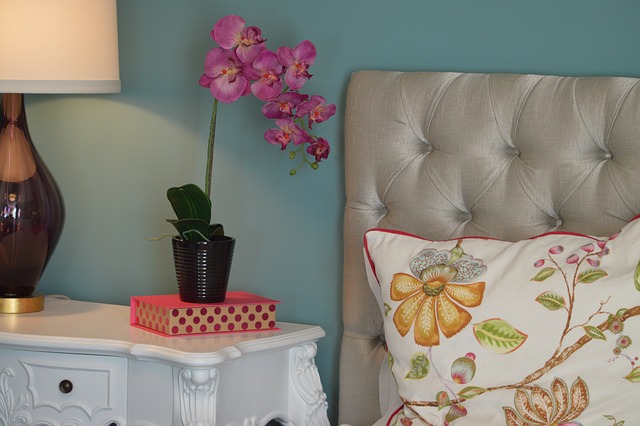
Recommendations for choosing colors
To ensure that the atmosphere in the home is always good, carefully approach the choice of colors. Green representatives will decorate the house, and cheer up the owners and their guests. Indoor plants are bought for houses, apartments, cottages, or offices. They decorate the interior, making it modern, stylish, and “alive”.
The selection is guided by the following criteria:
the peculiarity of the smell;
appearance;
flowering period;
All these parameters affect a person’s mood. Indoor plants affect human health and are able to calm, relieve stress, and set up a positive wave.
(1) -Interaction with indoor plants may reduce psychological and physiological stress by suppressing autonomic nervous system activity in young adults: a randomized crossover study. Min-sun Lee, Juyoung Lee, Bum-Jin Park, and Yoshifumi Miyazakicorresponding authors.
https://www.ncbi.nlm.nih.gov/pmc/articles/PMC4419447/

